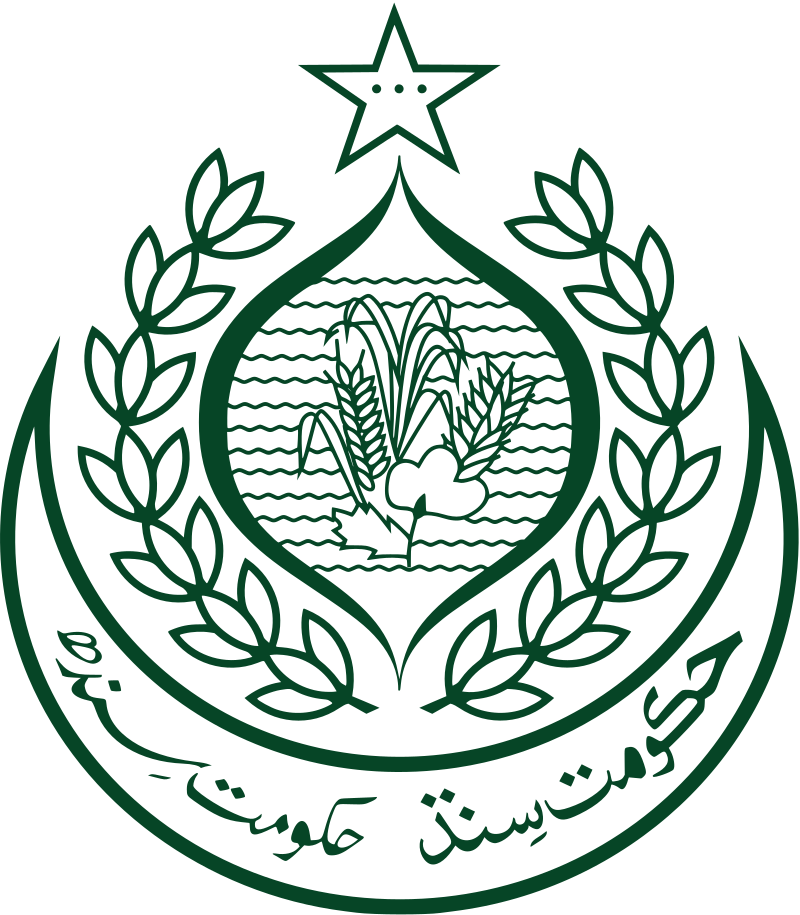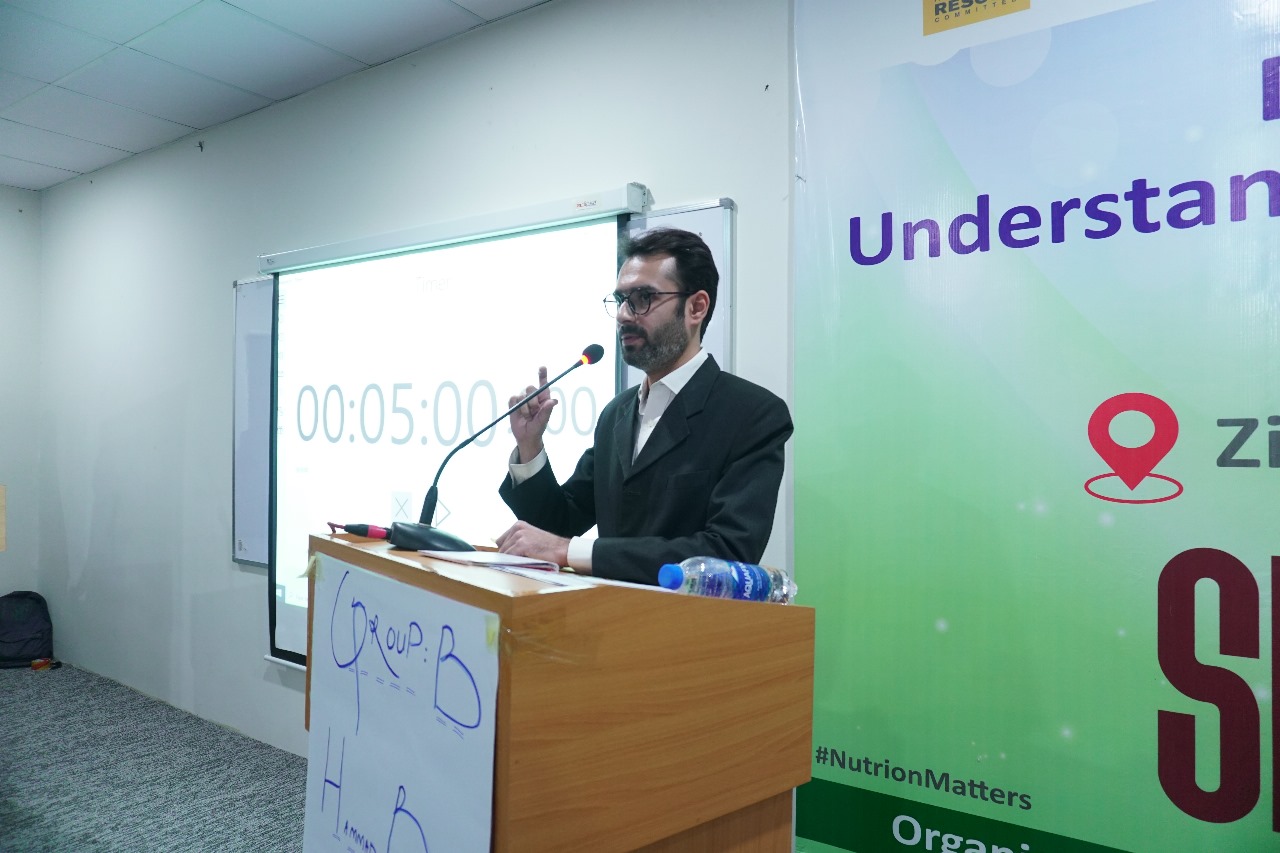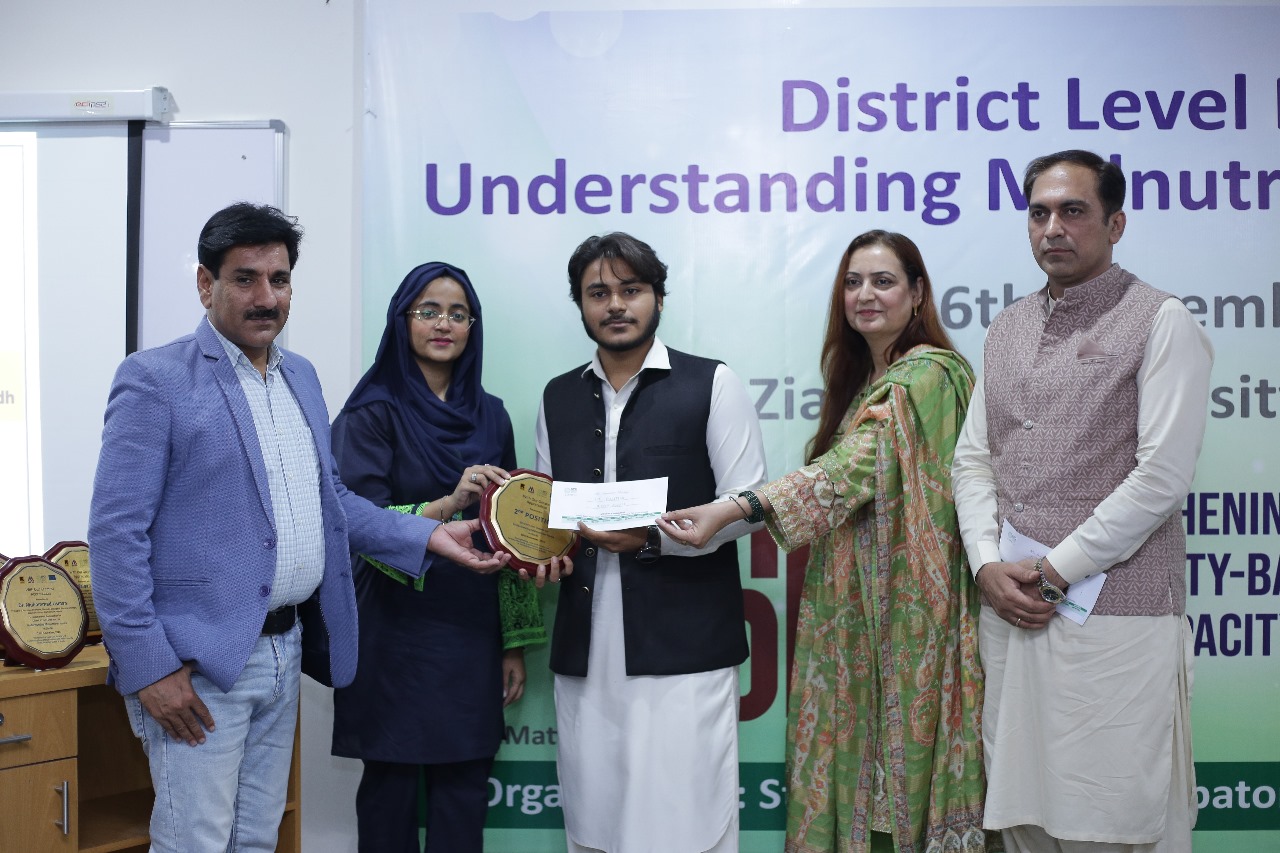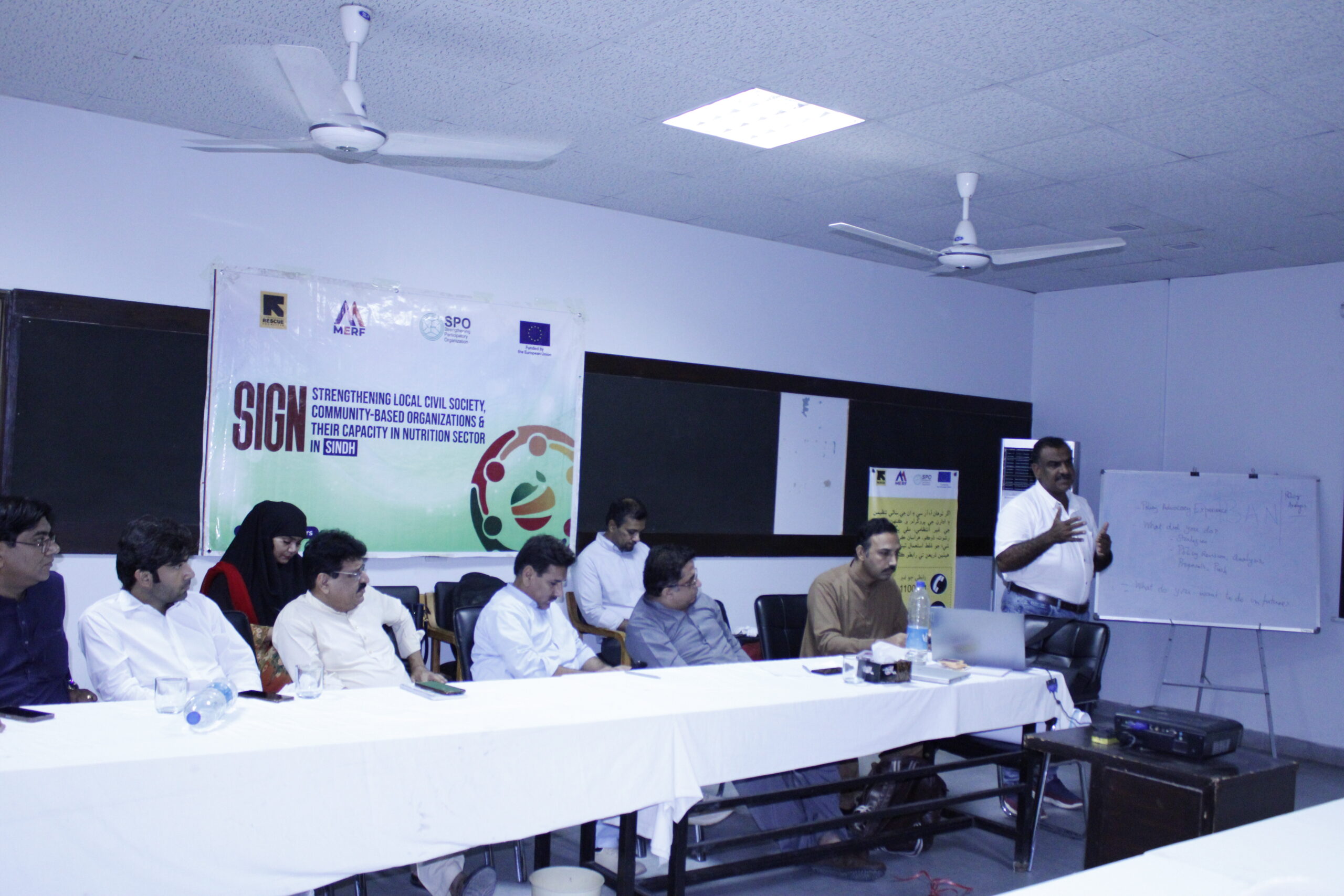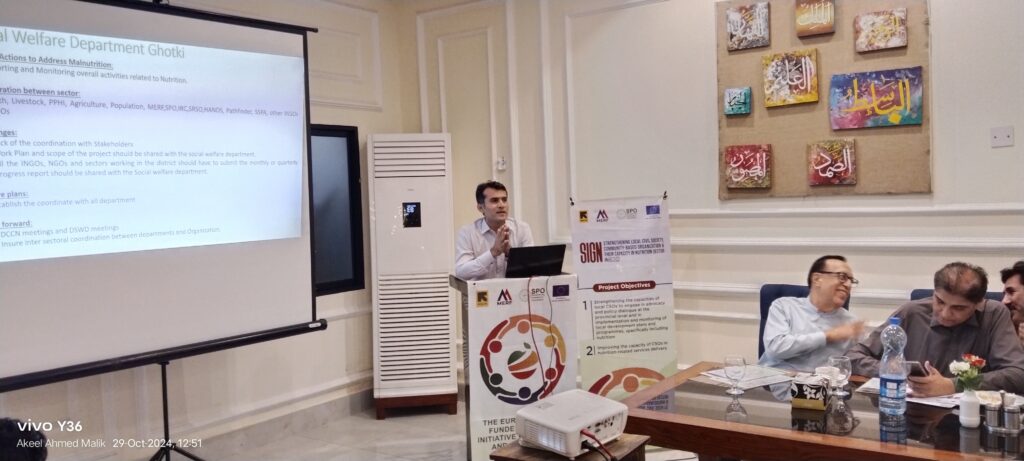
District Level Stakeholder Engagement Sessions
Strengthening Participatory Organization (SPO), in collaboration with the International Rescue Committee (IRC) and the Medical Emergency Resilience Foundation (MERF), jointly organized Stakeholder Engagement Sessions in Sukkur, Khairpur, Naushero Feroz, Kashmore, and Ghotki districts. The primary objective of these sessions was to involve key stakeholders in the program, share the project’s objectives and information, and explore potential collaboration opportunities. These sessions were designed to facilitate discussions on project goals, scope, and activities while also gathering input and expectations from Civil Society Organizations (CSOs). A total of five sessions were conducted, one in each district.
The district-level project teams from SPO, IRC, and MERF jointly conducted coordination and project briefing meetings with stakeholders in each district. These meetings engaged key entities, including the offices of the Deputy Commissioners (DCs), District Health Officers (DHOs), People’s Primary Healthcare Initiative (PPHI), Social Welfare Department (SWD), and UN agencies such as UNICEF, WHO, and UNFPA, along with national and international organizations active in the health and nutrition sectors.
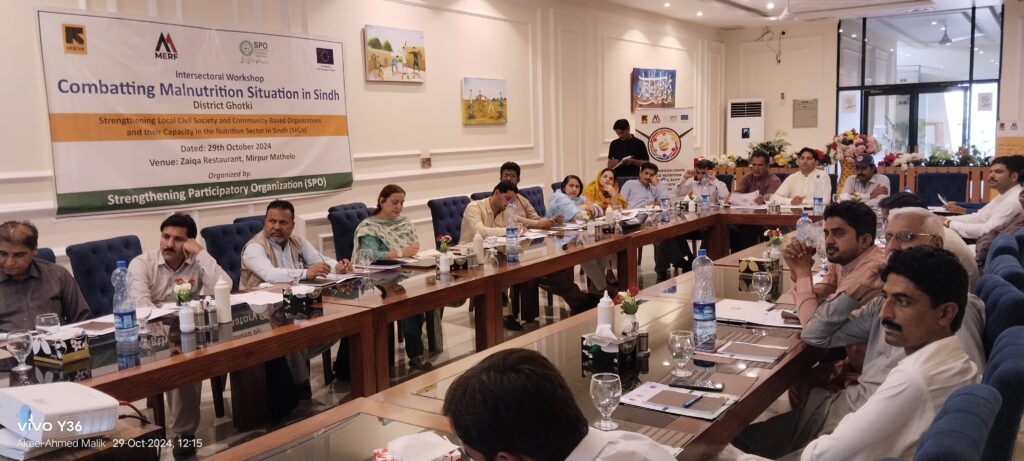
Following coordination meetings with local CSOs, district-level teams from SPO compiled a list of anticipated participants and sent out formal invitations to encourage their attendance at the stakeholder engagement sessions. SPO, in collaboration with IRC and MERF, successfully organized five district-level Stakeholder Engagement Sessions across Sukkur, Ghotki, Kashmore, Khairpur, and Naushero Feroz. These events engaged 50 local CSOs, with a total of 131 participants, including 16 females, 115 males, and 2 minority members.
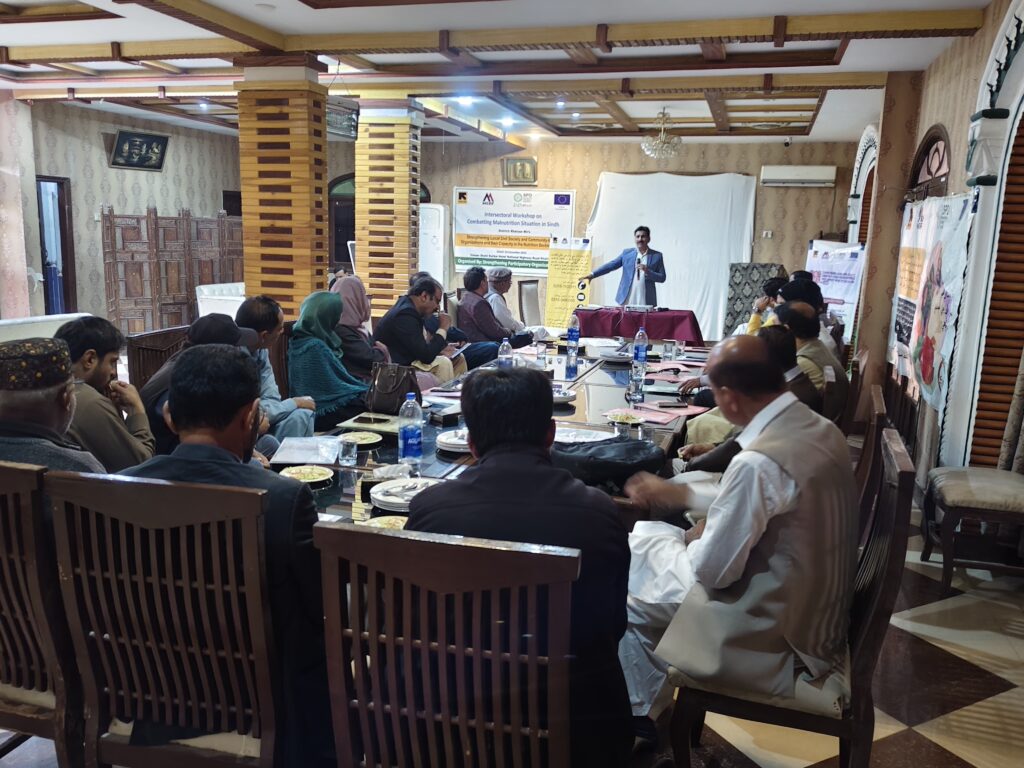
Nutrition engagement Sindh
Refers to initiatives and collaborative efforts undertaken in Sindh to involve stakeholders in improving nutrition outcomes, raising awareness, and addressing malnutrition.
Nutrition-sensitive agriculture
A strategic approach that integrates nutrition objectives into agricultural practices to enhance food security, promote dietary diversity, and improve public health outcomes.
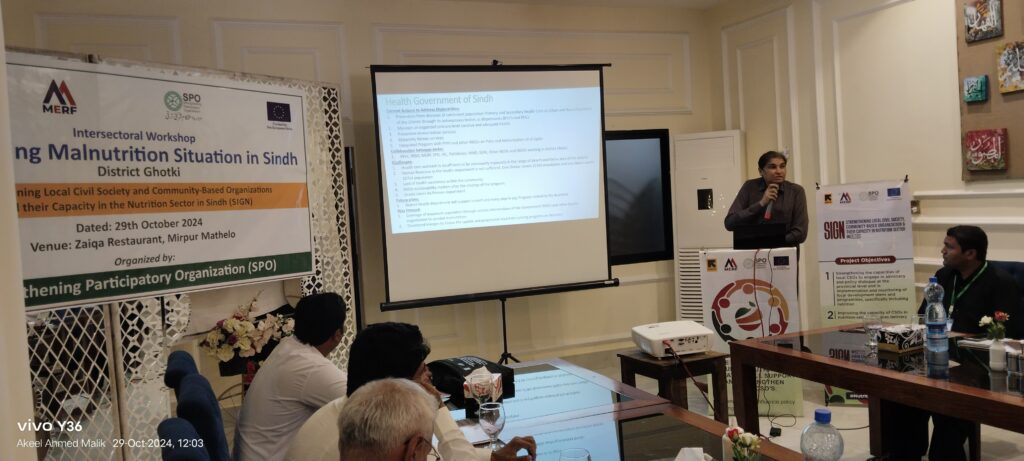
Nutrition education programs Sindh
Programs aimed at educating communities, particularly vulnerable groups, on proper nutrition, dietary practices, and the importance of balanced diets to reduce malnutrition in Sindh.
Health and nutrition integration
The combination of healthcare services and nutrition interventions to ensure a holistic approach to improving public health, particularly in underserved regions.
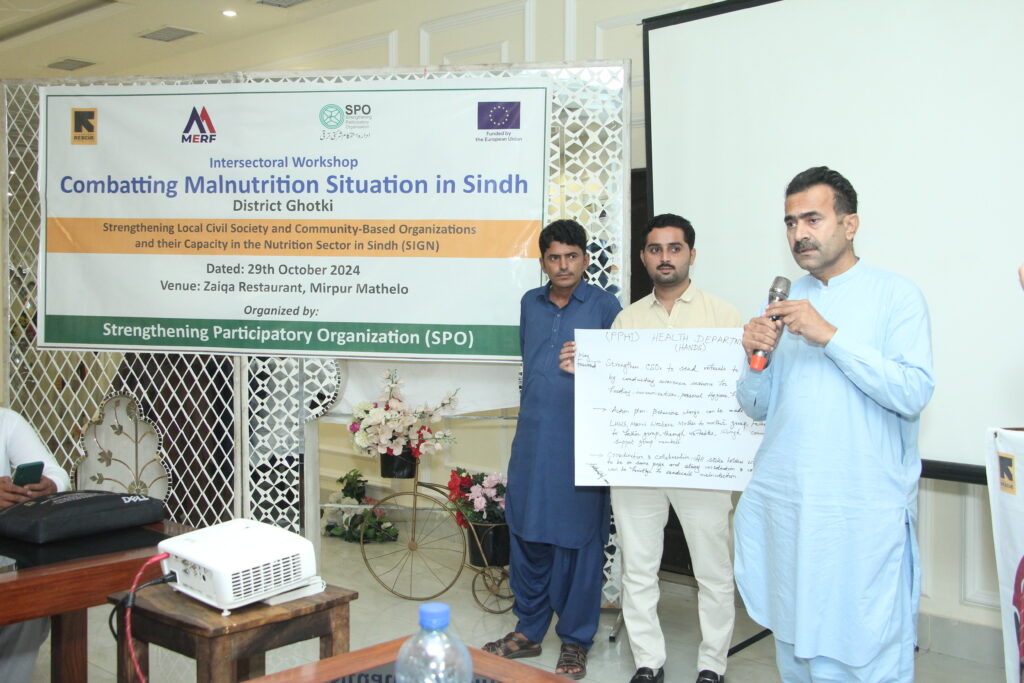
Community nutrition initiatives
Local-level programs and activities that focus on improving nutritional status through community participation, awareness campaigns, and accessible resources.
Social welfare and nutrition support
Efforts to enhance nutrition security through social welfare programs, including food assistance, financial aid, and community development projects targeting vulnerable populations.
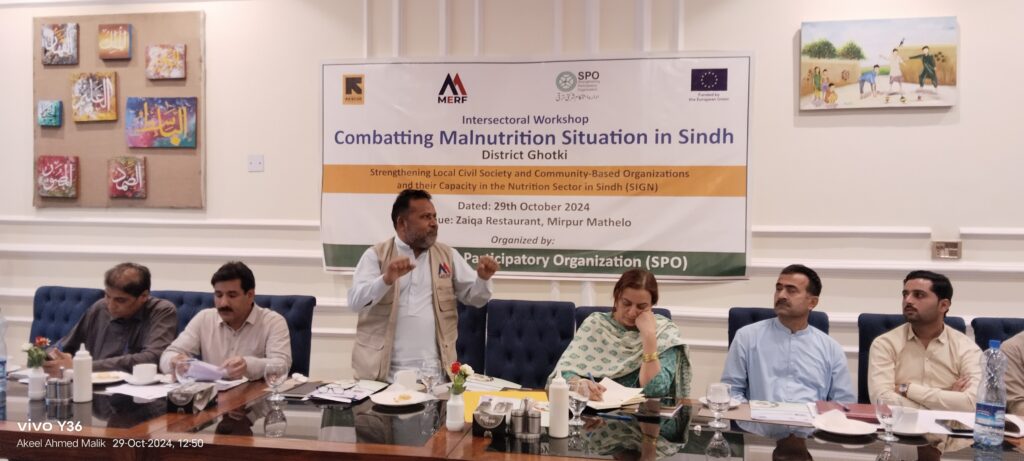
Family planning and nutrition
The relationship between reproductive health and nutrition, emphasizing the importance of maternal and child nutrition in family planning programs to ensure healthy growth and development.
Nutrition data monitoring
The collection, analysis, and use of nutrition-related data to assess trends, identify gaps, and develop evidence-based interventions for improving nutritional outcomes.
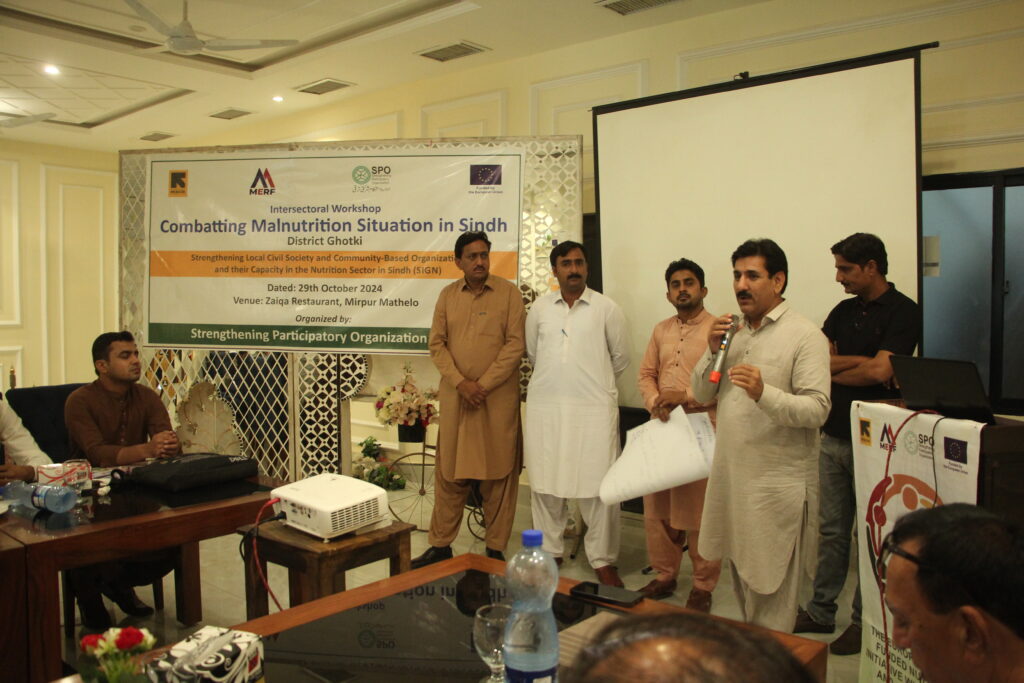
Malnutrition intervention strategies
Comprehensive plans and actions designed to prevent and address malnutrition through policy implementation, community engagement, and healthcare services.
Sustainable nutrition outcomes
Long-term improvements in nutrition status achieved through continuous policy support, community involvement, and integration of sustainable agricultural and health practices.

